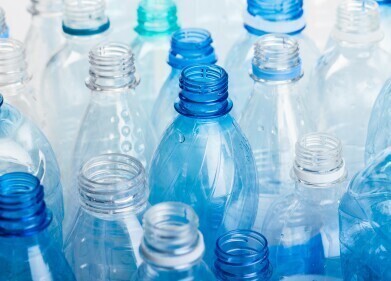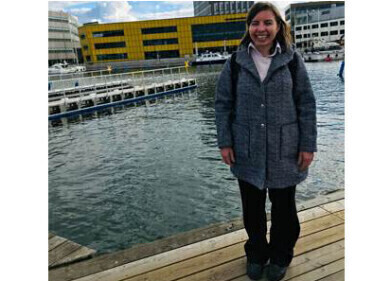-
 Environmental pollution and microplastics
Environmental pollution and microplastics
Microplastics Analysis
Identification and quantification of microplastics in environmental samples using pyrolysis GCMS analysis
May 04 2021
Environmental pollution caused by microplastics (MPs) have attracted much attention due to the potential risks of MPs to human health. Therefore, rapid and reliable analytical methods are required for identification and quantification of MPs in various matrices. Pyrolysis-gas chromatography/mass spectrometry (Py-GC/MS) has advantageous characteristics in that both identification and mass quantification can be easily done by chromatographic separation in combination with mass spectral analysis. Frontier Laboratories Ltd. (Japan) is leading the way in analytical pyrolyser development and related products. Their most sought-after product is the vertical micro furnace pyrolyser EGY/PY 3030D (Picture).
While the full extent of the risks posed by MPs are not well understood at present, MPs are usually defined as particles or fibers, consisting of synthetic polymers whose largest size is within the range of 1 µm to 5 mm, and plastic particles with a size of below 1 µm are defined as nanoplastics. Various studies have been reported on MPs in many different environments such as fresh water, wastewater, drinking water, soil, air, biota, and even foods. Since MPs exist in a wide range of matrices and have different forms in sizes and shapes, many pretreatment procedures, such as chemical and enzymatic digestion, density separation, filtration, and solvent extraction, have been proposed to separate MPs from various matrices. Identification of each separated MP particle is important to discriminate plastic particles of interest from natural organic material and inorganic particles which may coexist in a sample as a contaminant.
According to the mantra “You can’t manage what you can’t measure “, quantification of each polymer in MP samples is important to pursue the source of pollution, its fate and evaluation of environmental risk. Among the existing various analytical techniques, the most frequently used identification methods for MPs are micro-FTIR and micro-Raman spectroscopies which can detect MP particles with a size down to ca. 10-20 µm and ca. 1 µm, respectively. However, it is difficult for FTIR to measure MP particles with irregular shapes and Raman measurements sometimes suffer from strong background signal due to fluorescence when fluorescent pigments or additives coexist.
As for quantification of MPs, spectroscopic data refers to the number of particles, estimation of volume and density, therefore mass related data by size are rather estimations than accurate values. Mass quantification of MPs can be easily and directly attained by Py-GC/MS without any assumption and irrespective of shapes and sizes of sample particles including nanoplastics. Py-GC/MS requires only one-step flash pyrolysis with analysis by an on-line coupled GC/MS system. Identification of each polymer in mixed MP particles is easily achieved by chromatographic separation in combination with mass spectral analysis of the separated pyrolyzates, characteristic to various types of synthetic polymers and Frontier Laboratories’ F-Search data interpretation software. Mass quantification of each polymer in mixed MP particles is carried out by using the separated characteristic pyrolyzates as a key compound for quantification of each polymer in a mixture. F-Search has been augmented for the fast identification and quantitation (in a matter of seconds) of microplastics (F-Search MPs) of the most relevant plastic and rubber types. This automated analysis (quantitative and qualitative), has significantly shortened the time needed for the analysis, thus increasing significantly analytical efficiency in environmental laboratories. This new software “F-SEARCH MPs” will become available in June 2021.
Digital Edition
IET 34.2 March 2024
April 2024
Gas Detection - Biogas batch fermentation system for laboratory use with automatic gas analysis in real time Water/Wastewater - Upcycling sensors for sustainable nature management - Prist...
View all digital editions
Events
Apr 24 2024 Jakarta, Indonesia
Apr 24 2024 Sao Paulo, Brasil
Apr 30 2024 Melbourne, Australia
Apr 30 2024 Birmingham, UK
May 03 2024 Seoul, South Korea
-and-Müfide-Aydoğan-Ahbab-(right)[1].jpg)

















